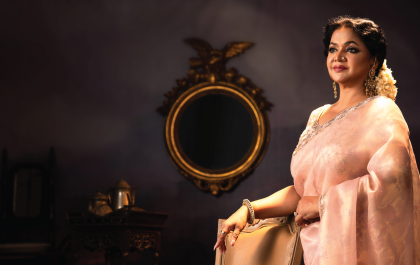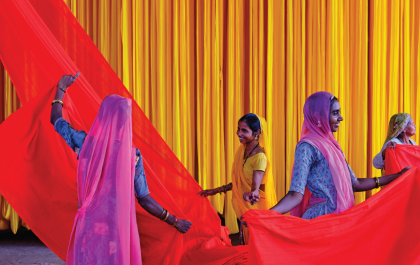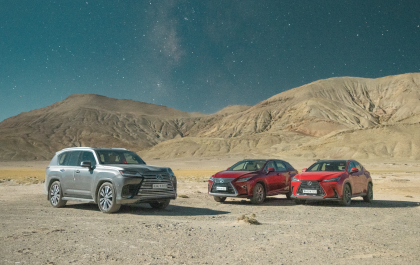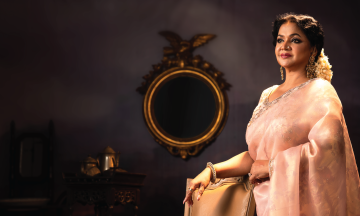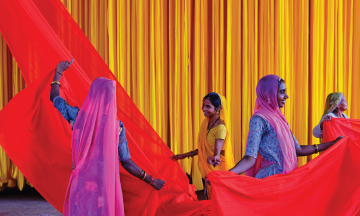Nazifa Tushi takes the slow and steady approach to growth as an actor and a human being
By Zareen Nawar
Since surfing the high tides with Hawa, Nazifa Tushi has most likely set herself up for further inadvertent adventures. Her career trajectory so far shows a woman in charge of setting her own pace and boundaries when it comes to maintaining a meaningful balance between her work and life. Nazifa Tushi recently received a nomination under the category of best film actress at the Meril-Prothom Alo. In between working on her acting skills and attending workshops, the Lux Channel I Superstar runner-up recently had a chat with MWB over the phone where the actress confirmed her girl-next-door demeanor to be true.
The starlet might not have revealed any news regarding her next acting station but she provided her undivided attention to converse about what makes Nazifa Tushi tick.
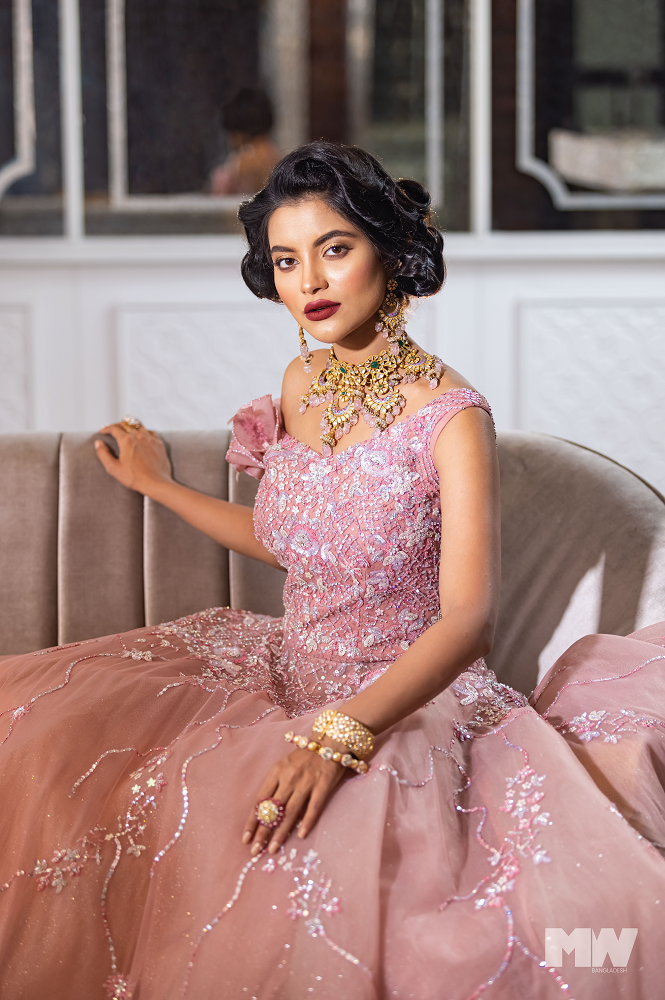
Was acting the main goal for you growing up or was it a bit of a surprise?
I wanted to become an actress growing up and honestly, I did not consider any other aims, but I did not realize that this would actually come true. I was intrinsically interested in reading books, following beauty pageants on screen, and creating entertainment-based collections. Basically, I was interested in showbiz globally so I was a genuine follower of the industries.
When I was a seventh grader, for instance, my younger sister used to perform at a theater in Baily Road and I used to be in charge of dropping her off, but I would not return home immediately. I would sit throughout her classes to observe their activities because I enjoyed watching the processes the actors used to develop themselves. I definitely felt a sense of attraction toward that direction, and I would visualize myself in those roles, and think about how I would have played the character. I did the same when I was watching a movie. All in all, my interest in acting was very present, and I would be inspired enough to wonder how I would have gone about acting.
I, however, thought of maybe dabbling in acting-based courses if I were to go abroad for my studies. That was just an initial thought of mine while I was still in school. By the time I was done with school, Lux Channel I Superstar had conveniently launched its new season and as a fan of the gala rounds of beauty pageants myself, I signed myself up since I wanted to experience attending a gala round. I didn’t tell anyone at home until I had actually been selected following my registration. My parents then encouraged me to go forward, with the caveat that I didn’t lose sight of my studies. I did assure them that I would not take my studies for granted before continuing toward Lux. And that’s how it all started.
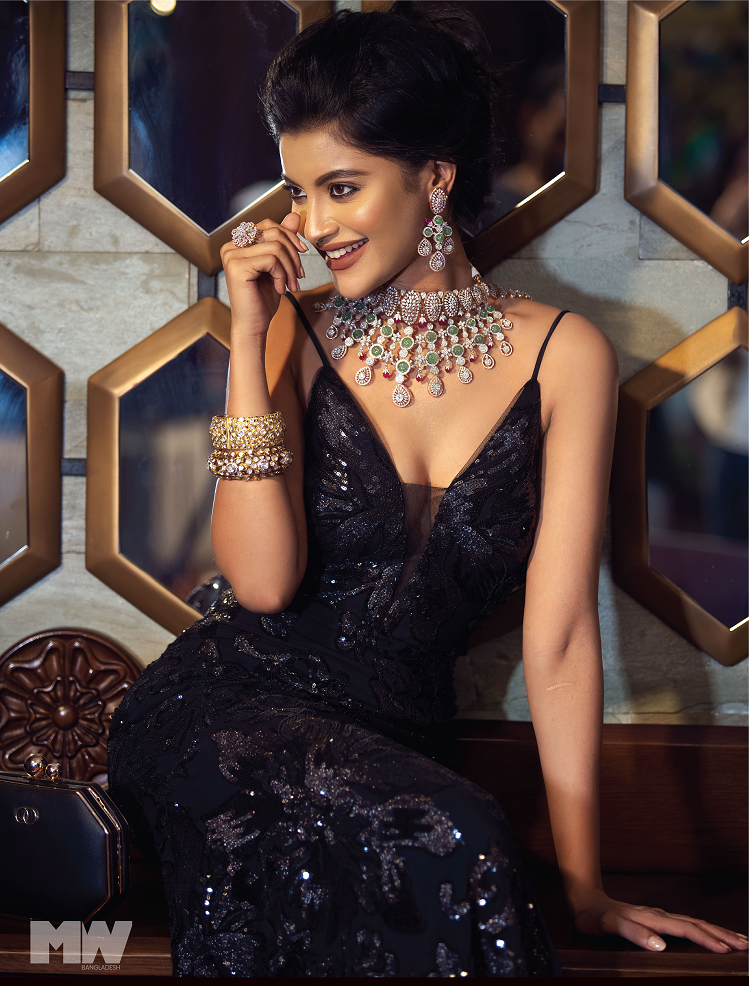
What was being a Lux Channel I Superstar contestant like for you?
It was a long while ago, and as far as I can remember, I was a bit nervous during my first day as I was surrounded by so many beautiful and smart women. At the same time, however, I felt a sense of strange confidence within me because the path I chose could actually lead me to my destination.
I used to be introverted and I was the girl who would just sit quietly in a place so I was not always easily noticed at the outset. Up until the acting round of the show, I was more or less like that. I suddenly received a lot of attention after the acting round and this helped me move upwards.
I still remember that my first acting experience was during that very round. Humayun Ahmed’s Aaj Robibar and Ayomoy were works that were separated into three parts and six characters were given to us to act out in front of the actors that were actually cast in these works. Redoan Rony was also called to direct our parts. At that time, all the participants seemed to be wanting characters with a lot of dialogue and gorgeous get-ups. There was a character called Madina from Ayomoy who Tarana Halim had actually played and no one really wanted to pick that part, because Madina was an unglamorous character with a small part on the surface. That role ultimately fell into my lap, and I was pretty naive back then so at first I thought that maybe I was given the dullest character to emulate, but Madina turned out to be a rather powerful character.
I gave the role my all anyway, as I wanted to be an actor far more than anything else in the industry, and I was praying to God for at least my passion for acting to be visible to the judges and the audiences. After I was done with my first take as Madina, Rony bhaiya came to me but he didn’t say anything, which heightened my confusion. When we were done with the whole scene, I noticed that everyone was clapping and only then did he say that I was doing a good job. The whole situation gave me a confidence boost and I also found out that I was at the top in that round. I still remember Suborna Mustafa telling me “You’re the best!” and even Aupee Karim Apu told me that she wanted to act with me. Those compliments truly made me feel that I was doing alright.
In fact, I received the proposal to act on my first film Ice Cream right then and there on the basis of my performance, by Redoan Rony bhaiya. He suggested I dismiss the competition to get right into acting and even asked me what my eventual desire was. I replied I wanted to become a global actor, but that I should probably finish the reality show properly. I then auditioned for the film after wrapping up the pageant as a runner-up and Ice Cream became my first film.
“Studies may provide a theoretical framework, but acting has a lot to do with observing life itself”

You mentioned admiring theater so did you end up studying acting after or at all?
I have been a little picky with projects and roles since my first film actually, I was looking for character-driven roles but I was just not coming across the types of quality films that I wanted to be a part of. The offers were lukewarm and OTT platforms hadn’t come up yet, so the good content was very rare. Since I wasn’t interested in the TV drama format, an acting career was starting to look less and less viable. I chose to focus on my studies, while still on the lookout for good scripts after graduation when I received the proposal to audition for Hawa. Then I went through a training period of one year for it.
For me, my story as an actor began after Hawa. Prior to that, I wanted to work diligently as an actor but again I did not really know how to become a good actor. I experienced at least one way when I got involved with Hawa’s team for a six-month-long grooming process. I began learning to craft a character then and Hawa gave me a unique character to work with. Then I did different types of workshops and theater and I am still continuing to do these short courses every chance I get. I even tried oriental drama.
Then again, acting can’t only be learned from studying it or even from someone else; there has to be a “feeling.” The nuances of maintaining and conducting the six senses, body language, and facial expressions to act in a certain way require a certain amount of lived experience. Good life, good books, good music, and a good environment add to the growth of individuals. Studies may provide a theoretical framework, but acting has a lot to do with observing life itself. The more an actor experiences, the more vulnerability they can exhibit in their acting. I think that there’s more to performance than a passion for acting. Competent performers perform with subtlety and nuance which makes their work different from the rest.
Practicing acting can only be applied industrially, by means of the visual medium. These measures taken to practice can be said to be an actor’s homework and the teachings and experiences are therefore generally merged. For example, a person who is very expressive might have a weak voice, on the other hand, someone else with a naturally powerful voice might not be as flexible as a person, but for acting, they will readily work on their weaknesses for as long as they choose to act. Globally, these actors stay relevant because they continue to hone their skills. Similarly, artists in different fields most likely practice in a uniform way such as singers and writers.
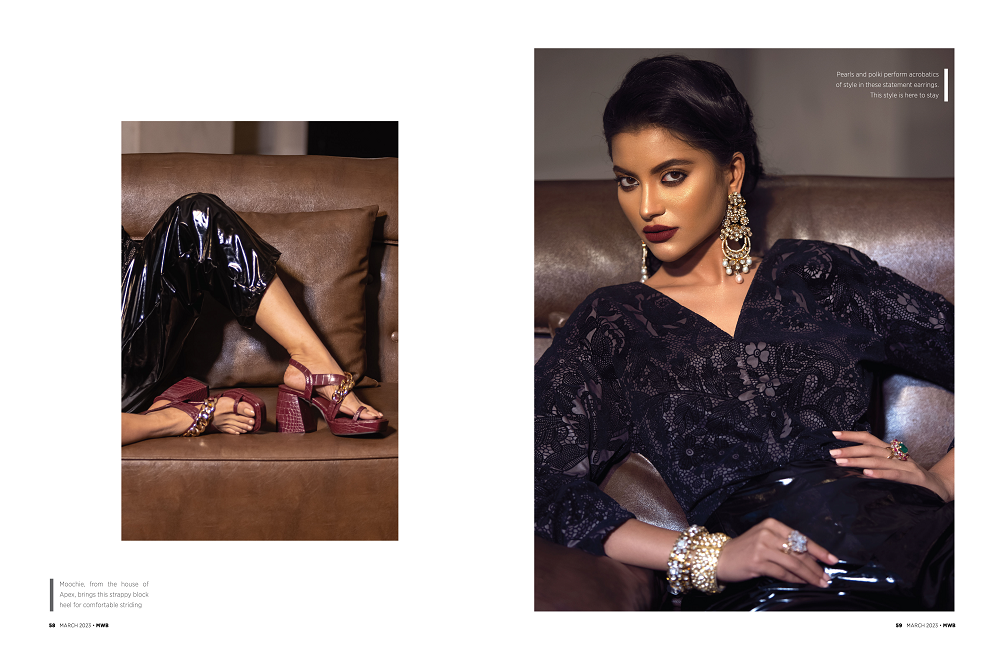
Can you elaborate on experiencing training for Hawa?
The process was entirely different for me. I had previously never worked with a director or crew like that of Hawa, so it took me time to adjust and to understand them. I was also in a situation where I did not understand most things, but one day when I asked the director why I was picked, he mentioned that I was willing to give my time and dedication. Now, a person may not know how to do something, but if they have the willpower to learn, then they’ll notice that the universe will help them somehow. I can’t help but feel that, so I suppose he saw that feeling within me.
We then went through several processes and as an actor, I was hooked. I want to work more on these sorts of projects. Some people might even say that Hawa is my first work, but I had never actually attempted performing at the theater prior to Hawa. I began attending workshops and working more on my acting after Hawa primarily because of the six-month-long grooming session I mentioned. For Hawa, I was never told that I was the final cast or that I would only be given the film if I attended the sessions. They simply said that I if tagged along with them for six months and proved to them that I would be able to play the part then and only then would I get the film. Up until we began filming, I was not sure if I was the final cast or not. I had merely a hunch because we did spend a good amount of time rehearsing while also dreading being rejected by them in case I failed to prove myself.
I personally felt like I was going through military training. Hawa’s team was rather firmly prepared for most things, and most of us spent more time developing ourselves and the script during our pre-production period. It took us some time to gain a producer. It was also the first time that a big Bangladeshi team filmed an entire film at one spot on the sea instead of another seashore. It was a tough shoot infused with thrill, fun, troubles, and just hordes of stories. That was the experience.
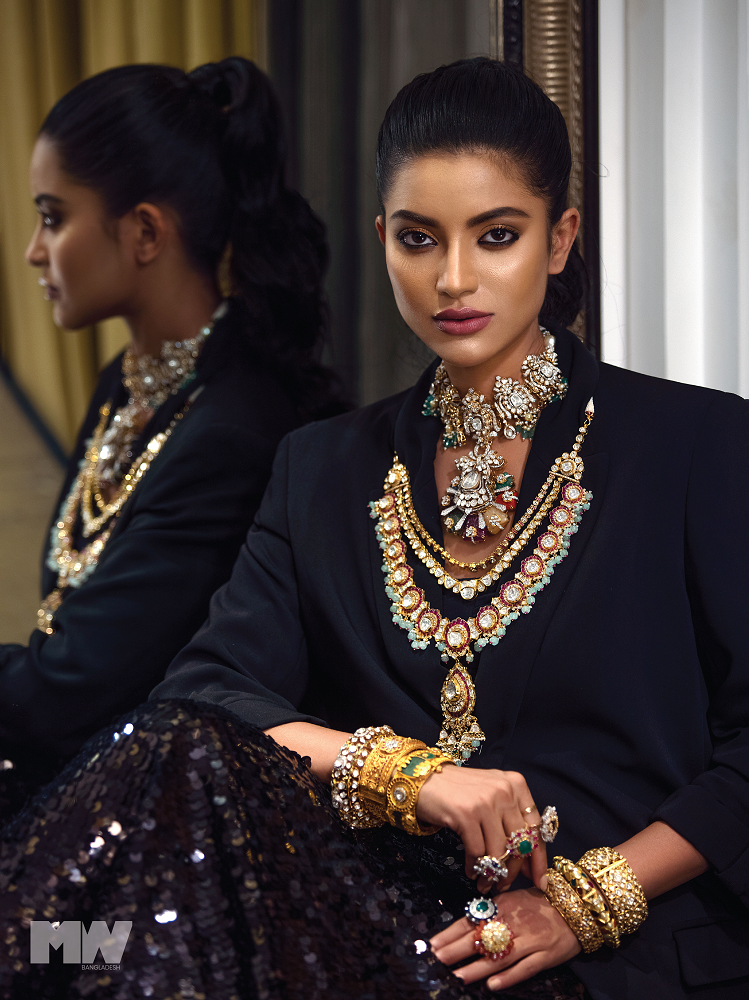
Hawa must be the most memorable experience for you in your career so far then?
Definitely, but Hawa is also significant for me because it allowed me to have two very different kinds of experiences before and after the shooting of the film. Even the promotions felt fresh. Considering the stage at which Hawa exists, right now, I myself get recognized because of it. You are interviewing me now, in fact, whoever comes to interact with me treats me like an actor. I received these from Hawa and the way the film reached people across the globe is huge! Most of all, the fact that I am a part of it is vital to me. I believe that Hawa will have at least left a noteworthy mark in my life for sure, but historically too.
Did you have expectations of any kind before entering the industry?
I don’t dwell on expectations. I just want to keep on doing my work and if people compliment me because of my work over my looks then I appreciate that the most. I just want to sharpen my crafts as an artist and be able to show refined skills. As an actor, I hope to reach the stage of being recognized as my characters, instead of as Tushi.
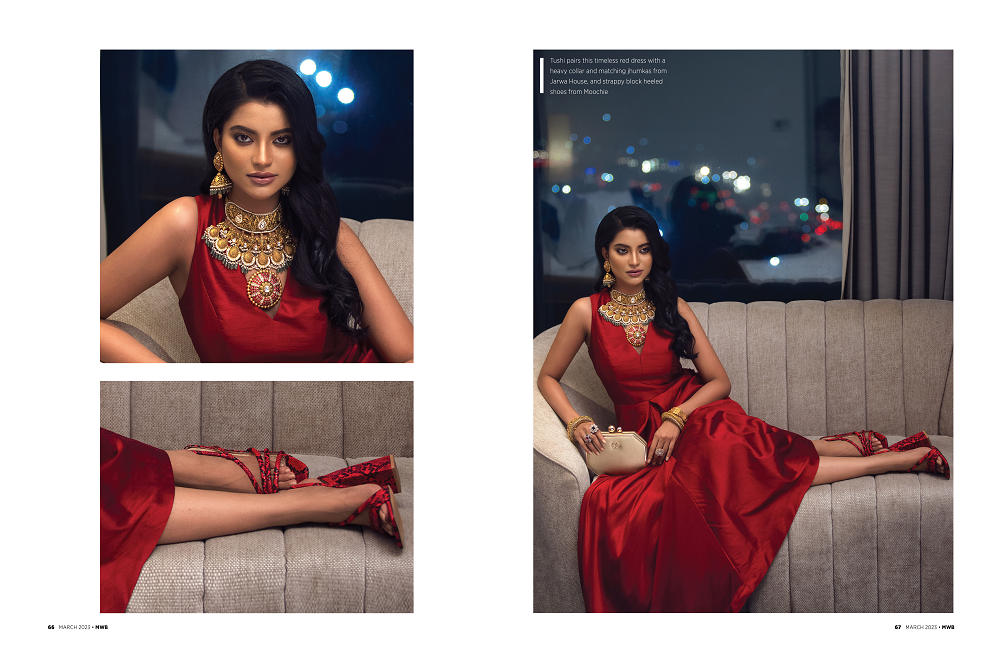
In your opinion, what shortcomings of the industry still exist?
There will always be room for improvement, but at the same time, we’ve also seen a lot of progress. Ever since the arrival of OTT, there have been many projects and offers, but I think that our perspectives require change. Most people make calculated moves, as in they think that this actor paired with this actress will create a blockbuster hit, but that’s not the full picture. The prevailing focus is on the hype around the film instead of the real subject matter which is the product. If any said product is good, then the audience will consume it. People have been focusing more on communication over the quality of the product, but there needs to be a fruitful balance, only communicating a product or output to the audience is not the way to go.
“Only very few directors and works pay attention to women-centric stories. In reality, almost everyone here, starting from the platform, believes that women-centric work does not make money, which I do not believe”
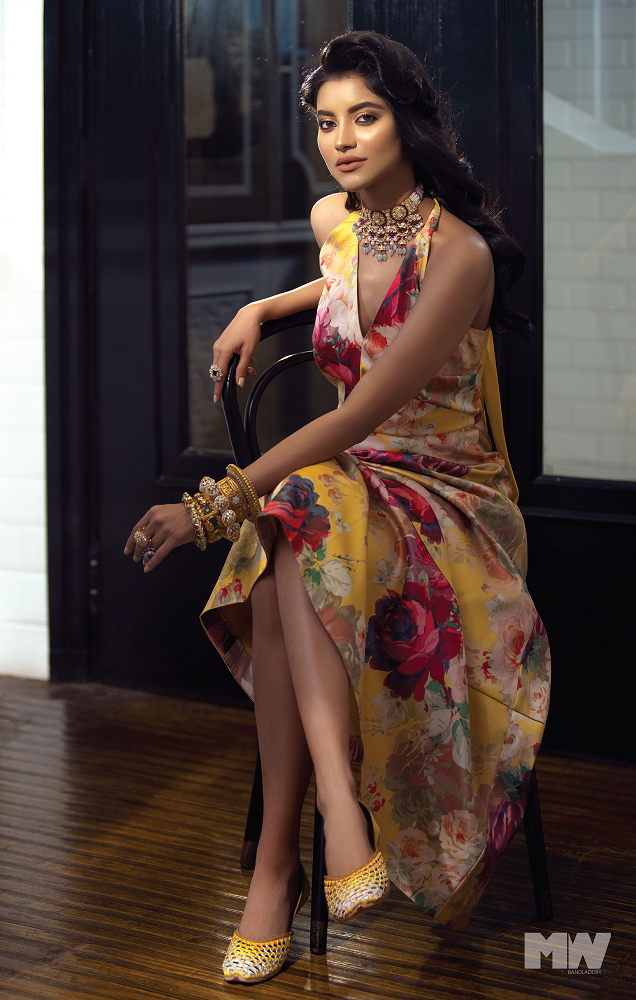
As women, we probably have to work harder than men in any given industry, now in terms of opportunities, what kinds of work or measure will at least help or feel worthwhile, what do you think?
As I said, the struggle is persistent, regardless of the medium or sector, and the bigger a person is the bigger their struggles are. To “struggle” does not equate to not getting work. [For me,] the struggle is whether I am able to provide the kind of quality of work that I want to or not. First of all, women obviously have obstacles, they are typically either cast as girlfriends to the heroes or characters with sex appeal who are ultimately objectified. Even if one does not want to admit it, it is true. How many women-centric stories are even there or made?
Almost all the stories are built from the point of view of men. Only very few directors and works pay attention to women-centric stories. In reality, almost everyone here, starting from the platform, believes that women-centric work does not make money, which I do not believe. If a work fails to reach the desired point or degree of profit despite being women-centric, then it just means that the work was never created properly to begin with. The failure has nothing to do with the work being women-driven. Movies with female protagonists may be produced less globally despite them raking in money but these productions are even less attempted or found in the already small Bangladeshi showbiz sector.
If this lack of balance is not attended to, then how are we supposed to carry on with the business? There needs to be an improved plan regarding this. If they make a total of 10 movies necessitating one of them to be woman-driven, for instance, then this ratio needs to shift to necessitating four of them to be woman driven or female-centric in the first place. Basically, they need to start from somewhere to head toward that ideal fifty-fifty ratio. The shift needs to be not only in terms of actresses, I believe that we need more female writers, directors, cinematographers, and so on. This stereotypical mentality of employing one female actor, a female designer, or again one female make-up artist only on the basis of established norms needs to be forgotten.
There are shifts that are already happening. I admire a lot of influencers and freelancers who are exploring their respective talents. Women have to go through many obstacles to get to changes that will happen. Truthfully, prior to encouraging people from all over to play a part in shifting normalcy, we women need to appreciate women more. When one woman is able to fix her own misguided perspective towards another instead of feeling jealousy of some shade, then we will be able to unite substantially.

If we move further into your preferences, then what exactly have you tried to find from your characters so far, or what do you prefer to get from your characters?
As far as I am concerned, I want to be invested in characters that are nothing like Tushi, because I am unlikely to have fun playing the roles otherwise. I already know who I am as a person. When I am given a character completely unlike me, it is the most fun. I want to experience the lives or personalities that I am not in possession of. The more interesting the character’s life and journey, the better for me.
Do you perhaps have a dream character in mind for you to one day attempt, be it positive or negative, and is there any specific director you want to work with?
I do not believe in a character being completely negative or vice versa, as emotions of all kinds humanize people and characters. It is all about characters having different depths of layers, for me. I don’t have anything particular in mind, but I would love to experience challenging characters that will feel unthinkably abstract for me in maybe a fairytale-like fictional genre, or even in a historical piece.
I also hope to work with directors who are passionate and honest, and who will be able to provide me with a memorable trip really, because Hawa, for example, was a trip for me, so no, I am not after any specific director as I have yet to work with many directors, really.
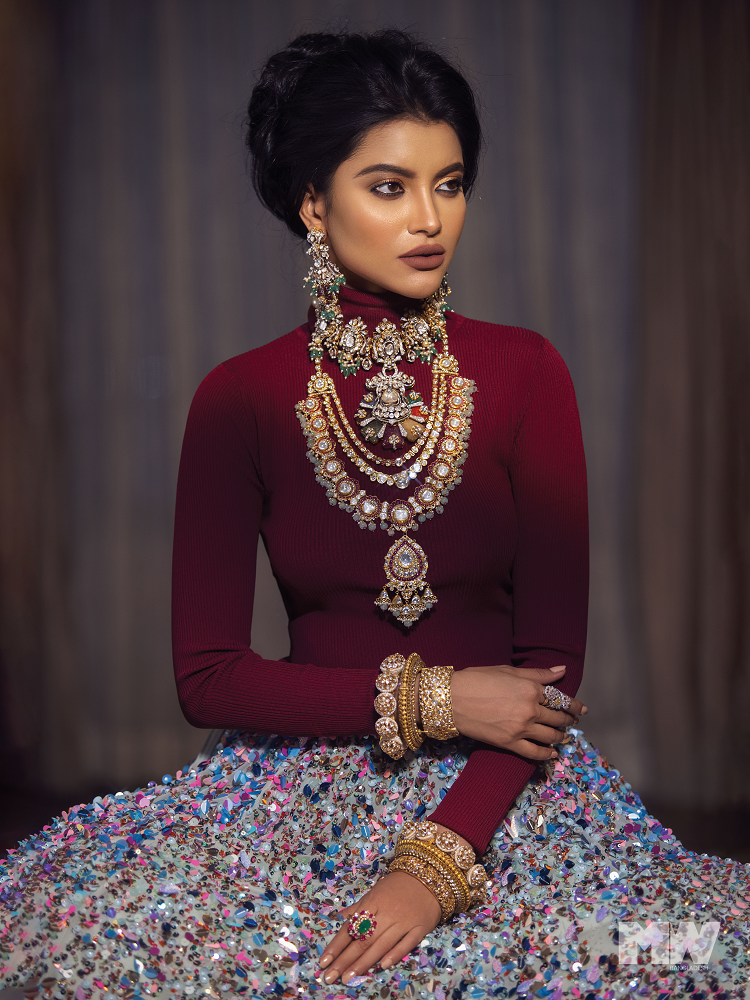
I feel like you have a relatable and approachable personality in general, so do you have any helpful advice for up-and-coming actresses in particular?
I would advise them to create themselves or build themselves up, mostly because the journey is tough and one needs to be patient. They need to be able to protect themselves, especially mentally and intellectually. The more available one is, the more one is likely to lose oneself, so it is better to make one exclusive with the use of their talent. I personally gathered these after learning from my seniors. Good surroundings will be helpful, as they will need the support of the company they keep, and life itself. A good living will only enhance their talent.
Lastly, what does fashion mean to you?
Fashion for me is the inner effort, it depends on how able one is when it comes down to the matter of taking care of their own mind and body. That defines one’s beauty for me. As an actor myself, I feel like I should be able to stand confidently when wearing torn clothing or even some glamorous look, so the inner workings of a mind matter far more to me. Trends can more or less be adaptable, but inner beauty reflects individual fashion.
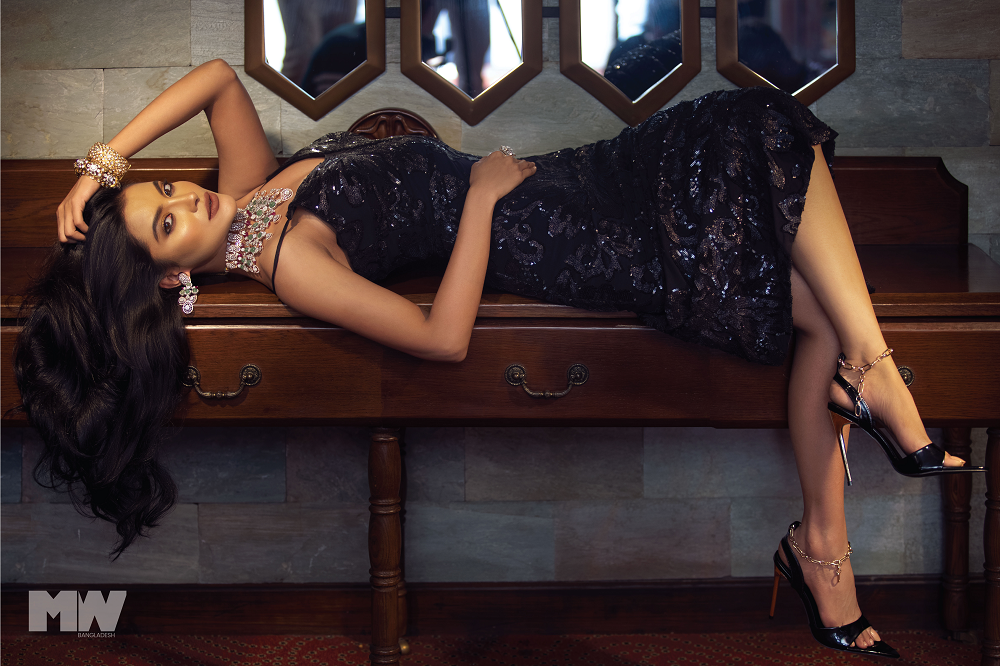
Fashion Direction & Styling: Mahmudul Hasan Mukul
Photographer: Rony Rezaul
Cinematographer: Ashrafuzzaman Shakkhor
Make-up & Hair: Monowar Hossain Himel
Assistant Stylist: Arbin Topu
Location: LE MERIDIEN DHAKA





